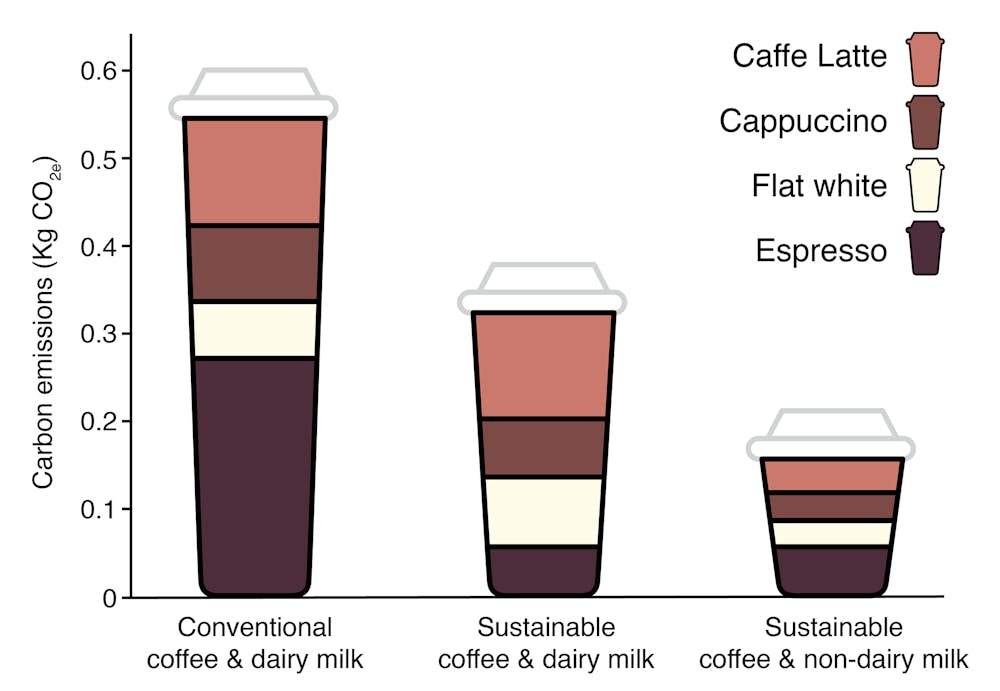Coffee gets many of us functioning in the morning, but a new report revealed how badly our favorite drinks hurt the environment.
Researchers from University College London examined four standard Starbucks orders and compared their carbon footprint.
Made with plenty of milk, ranked no.1, followed by cappuccinos, flat whites, and then dairy-free espressos.

Researchers stated that using non-dairy milk alternatives would make the caffeine fix much more eco-friendly as well as patronizing coffeehouses that buy from companies using sustainable agricultural methods.
More than 20 billion pounds of coffee are produced globally each year.

Mark Maslin, an earth sciences professor at the University, stated that at the current rate coffee production will triple in the next 30 years, putting even more pressure on already overtaxed tropical habitats.
In a report published in the Journal of the Royal Geographical Society, Maslin and doctoral student Carmen Nab, reported that the larger proportion of milk than coffee used in these beverages resulted in a significant increase in carbon footprint for conventional coffee production, the carbon footprint increased by 25% (flat white), 50% (cappuccino), and 100% (cafe latte) in comparison to espresso.
Those values drop across the board by about .20 kilograms if the beans were produced sustainably.

They noted that changes in cultivation and transportation chains, as well as in how we consume it, could lower coffee's carbon footprint by up to 77 percent.
The pair recommend several strategies for coffee farmers to shrink their environmental impact, such as using organic waste instead of chemical fertilizers and relying on renewable energy instead of electricity to power equipment.
Changes in temperature and rainfall caused by climate change have also threatened global coffee production and maybe making plants more vulnerable to 'coffee-specific pests and diseases such as the Hemileia vastatrix, a fungus that causes coffee leaf rust and can be devastating to plantations.
A 2019 study from the UK's Kew Royal Botanic Gardens discovered that more than 60% of coffee species were threatened with extinction due to climate change.












